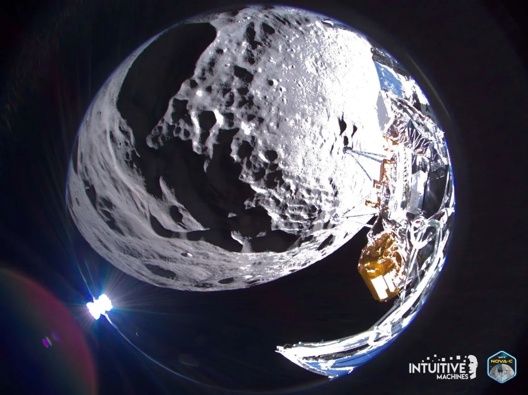Follow
the podcast on

On Friday afternoon, the spacecraft Odysseus landed on the moon, prompting NASA administrator Bill Nelson to claim- “What a triumph. Odysseus has taken the moon. This feat is a giant leap forward for all humanity.”
But is it? Or is it just another start of a great leap forward? And haven’t we been here before?
The excitement is understandable. It’s the first time a US-built spacecraft has completed a soft landing on the moon since 1972. It’s also the first time a private company has done it.
The role of a private company is one of the most interesting things about this mission. The involvement of private space companies and their money and tech advancements have turned the traditional aerospace industry on its head, placing them at the front and centre of space exploration.
The Odysseus was commissioned by NASA to carry gear to the moon for research purposes, in preparation for when astronauts return to the moon, before 2030.
NASA is still paying the bills. It paid Intuitive Machines of Houston US$118 million to deliver 6 instruments to the moon, and the transport they used was provided by another private company, SpaceX.
After a few communications concerns post-landing, the data started being transmitted back home and the mission was deemed a success. That was until yesterday, when we found out it had tripped over and tipped onto its side.
So I’m not sure you can claim that Odysseus 'has taken the moon.' Although it’s certainly on the moon. The wrong way up.
So why are we suddenly so interested in heading back to the moon?
Washington claims its reason for returning is to establish a human presence outside Earth’s orbit, including a lunar base camp and a space station orbiting the moon. It will help us better understand deep space before embarking on the big goal - a voyage to the red planet, Mars.
- Tech: Private spacecraft is headed to the moon
- "Landing is another matter": US spacecraft to attempt moon landing
The US is not alone in its renewed enthusiasm for the moon. Japan scored a lunar landing last month, which also tipped on its side (occupational hazard), and India successfully sent a rover to the lunar surface last August. China landed a spacecraft on the dark side of the moon in 2019, while Russia crashed a spacecraft onto the moon last year.
So it feels like there is strong motivation is to grab a slice of the next frontier. Could space be the new Antarctica, with flags being thrown all over the place, setting precedents for property rights, and access to minerals and mining? If you look at what’s happened in low earth orbit over the last few years, management of deep space is important.
Lower earth’s orbit is largely unmanaged and masses of satellites have taken up residency. According to Ashlee Vance, author of When the Heavens Went on Sale, an air traffic control system which tracks all satellites and debris in 2022 was sending out 400 million collision alerts per month.
While it will be fascinating to watch this sci-fi story play out - and who isn’t excited about sending humans to Mars - let’s not get ahead of ourselves, the landing of this latest spacecraft is but one step in NASA’s Artemis mission to return to the moon. It’s a some distance from “a giant leap forward for all humanity.”
LISTEN ABOVE
Take your Radio, Podcasts and Music with you









